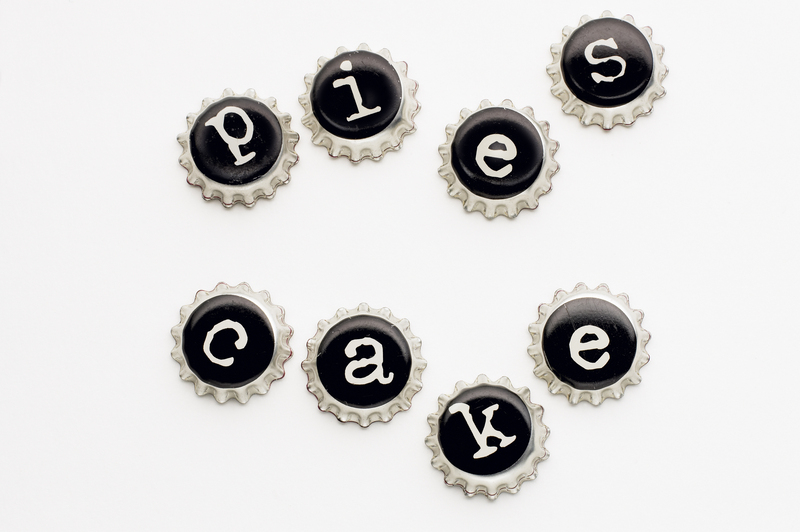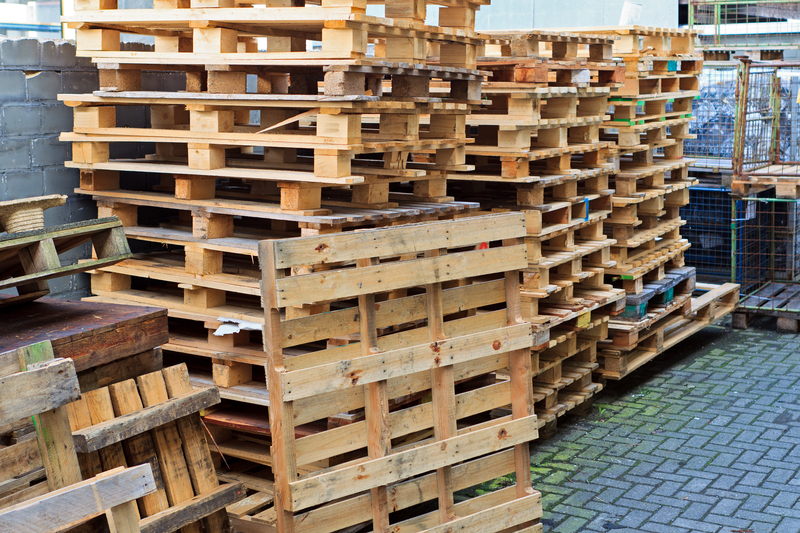How to Ensure Your PPE Waste Doesn't End Up Polluting Nature
The widespread use of personal protective equipment (PPE)--including masks, gloves, face shields, and gowns--has been essential in protecting public health, especially during global health crises like the COVID-19 pandemic. However, the unintended consequence of this lifesaving gear is the unprecedented rise in PPE pollution in our natural environments. Improperly discarded PPE not only mars the beauty of our landscapes but also poses a significant risk to wildlife and ecosystems. This comprehensive guide will walk you through actionable steps on how to ensure your PPE waste doesn't end up polluting nature and how each of us can be part of the solution.
Understanding the Impact of PPE Pollution on Nature
Before we delve into solutions, it's crucial to understand why PPE waste is particularly problematic. The materials used in most disposable PPE--including polypropylene, latex, and plastics--are not biodegradable. When improperly disposed of, these items can persist in nature for decades, harming both terrestrial and marine ecosystems.
Environmental Consequences of PPE Waste
- Wildlife Threats: Animals can mistake PPE items for food, leading to ingestion and potentially fatal blockages.
- Microplastic Generation: Over time, discarded masks and gloves break down into microplastics, contaminating soil and waterways.
- Ecosystem Disruption: Accumulated PPE waste can disrupt the natural balance, suffocating plants and harming aquatic life.
With this backdrop, it's easy to see why PPE waste management is an essential component of environmental stewardship today.

Best Practices for Responsible PPE Waste Disposal
Adopting mindful habits when using and disposing of your PPE can drastically reduce its odds of ending up in natural habitats. Here are the expert-recommended strategies to help you manage your PPE waste responsibly.
1. Use Reusable PPE Where Appropriate
- Opt for Washable Masks and Gowns: Whenever possible, choose cloth masks and washable gowns. Proper laundering with soap and hot water effectively sanitizes them for reuse, dramatically cutting the volume of single-use PPE entering the waste stream.
- Caution: Single-use PPE is still essential in certain healthcare and high-risk environments. Always follow local health guidelines when determining if reusables are suitable for your situation.
2. Proper Collection and Containment
- Designate a Container: Have a dedicated, lined bin at home or work for PPE waste. This prevents contaminated materials from mixing with general waste or recyclables.
- Seal Before Disposal: Place used PPE in a sturdy bag or wrap before discarding. Knotted bags help contain potential viruses and mitigate accidental spread by wind or wildlife.
3. Safe Disposal According to Local Guidelines
- Follow Municipality Protocols: Many locales have established PPE waste disposal protocols. This may include special bins, dedicated collection days, or designated drop-off points--especially for medical or potentially infectious waste.
- Curbside Cautions: If your local waste management doesn't accept PPE in regular recycling or compost, ensure all items are securely bagged and marked as waste--not recyclables.
4. Never Litter or Flush PPE Items
- No Flushing: Masks and gloves are not flushable! Flushing PPE clogs sewage systems and increases the risk of these items being washed into rivers, lakes, and oceans.
- No Littering: Discarded PPE is commonly found in public spaces. Participate in community clean-up efforts and encourage others to dispose of PPE waste properly.
Embrace and Promote Eco-Friendly PPE Alternatives
Innovations in manufacturing are producing biodegradable and recyclable PPE options. Whenever possible, support companies committed to sustainability. Choosing eco-friendly PPE significantly reduces environmental burden if those items do end up outside the waste stream.
- Look for PPE made from biodegradable bioplastics or natural fibers like bamboo.
- Some suppliers offer recyclable face shields and gloves marked with recycling codes--check local recycling rules first!
- Institutional users (like hospitals) should lobby suppliers for greener PPE and set bulk recycling or composting programs.
Recycling Used PPE: What Are the Options?
Traditional recycling systems are not designed for contaminated medical waste, which includes used PPE. However, specialized waste management firms and pilot programs are emerging in many regions.
- TerraCycle and Similar Initiatives: These programs collect used masks, gloves, and gowns. Items are then mechanically and chemically processed to recover materials for reuse in construction materials, industrial items, and more.
- Contact Your Municipality: Reach out to your local waste management authorities and ask about PPE-specific recycling options or drop-off locations.
Note: Never place used PPE in home recycling bins unless clearly instructed by waste authorities; cross contamination can disrupt recycling efforts and pose risks to workers.
Raise Awareness: Educate and Involve Your Community
Combatting PPE pollution is far more effective as a community effort. Spreading awareness motivates broader participation in proper waste management.
- Share Information: Use social media to educate friends and family on the correct ways to dispose of and reduce PPE waste.
- Participate in Clean-Ups: Join or organize local events to remove PPE litter from parks, riversides, and urban areas.
- School Programs: Encourage schools to teach students about the environmental impact of PPE and highlight responsible practices.
Engage with Authorities
- Feedback and Advocacy: Advocate for accessible PPE disposal bins in public places, particularly near hospitals, transport hubs, and shopping centers.
- Business Partnerships: Urge local businesses to place clear signage and specialized bins at entrances and exits.
Innovative Solutions to Prevent PPE Waste Pollution
The challenge of keeping PPE waste out of nature has inspired many creative approaches. Here are a few standout solutions being implemented globally:
- Reverse Vending Machines: In several countries, vending machines accept used masks and gloves and provide small incentives to encourage correct disposal.
- Mobile Collection Units: Pop-up services collect PPE waste from neighborhoods and deliver it to certified processing facilities.
- Research and Development: Ongoing studies are focused on converting used PPE into construction bricks, fuel, and other useful products.
How You Can Support These Innovations
Your voice matters. By supporting legislative or non-profit campaigns focused on sustainable PPE management, you can help accelerate the spread of these promising solutions.
- Sign petitions and provide public comment on waste management proposals.
- Volunteer for pilot programs or donate to organizations working on eco-friendly PPE initiatives.
At-Home Tips to Minimize and Manage PPE Waste
It's not just about disposal--smart habits at home contribute significantly to reducing environmental PPE pollution.
- Buy Responsibly: Instead of bulk-buying single-use products, consider your true needs with a preference for reusable PPE.
- PPE Upcycling: Clean, uncontaminated items (such as mask ear loops) can be creatively upcycled for household purposes, like plant ties--just ensure they're disinfected first.
- Store Carefully: Protect unused PPE in sealed containers to reduce the risk of accidental litter or spoilage that could necessitate early disposal.

The Future of PPE Waste: Moving Toward Sustainability
As awareness grows, the demand for sustainable PPE waste disposal solutions is pushing innovation in manufacturing, logistics, and public policy. Consumers and businesses alike have a pivotal role to play.
- Support Brands with Green Credentials: Look for certifications and transparency in company environmental policies.
- Stay Updated: Follow the latest guidelines from health and environmental agencies regarding PPE use and disposal.
- Push for Change: Lend your support to petitions, community forums, and local representatives advocating for better PPE waste management systems.
Conclusion: Protecting Nature Starts With Your PPE Choices
The responsible use and disposal of personal protective equipment is essential not just for our health--but for the planet's future. By embracing eco-friendly PPE options, adhering to best disposal practices, and educating those around us, we can dramatically reduce the environmental fallout of the COVID-19 era and beyond.
Every mask or glove properly disposed of--or better yet, not wasted at all--is a step toward cleaner oceans, safer wildlife, and a greener, more hopeful tomorrow. Take action today--nature is counting on you.
Key Takeaways
- Always dispose of used PPE in lined, sealed bins, following local protocols.
- Whenever possible, choose reusable or biodegradable PPE alternatives.
- Never litter or flush any PPE items--instead, educate and help others make informed choices.
- Support and participate in community cleanups and environmental advocacy efforts.
- Stay informed about innovative solutions for PPE recycling and upcycling in your area.
For more information on biodegradable PPE products, local recycling options, or to get involved with environmental advocacy efforts in your area, browse leading environmental organization websites and your local government portals.
